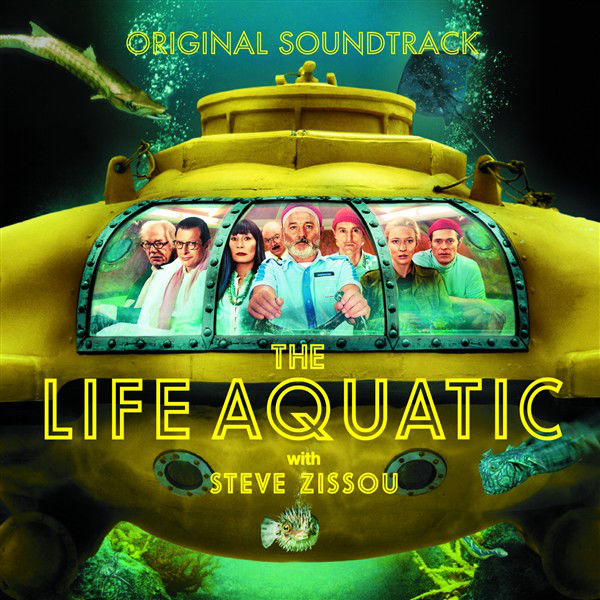Chris Feil wishing Wes Anderson a happy 50th birthday!
 The Life Aquatic with Steve Zissou feels like a transitional film for Wes Anderson, one caught between our perceptions of his “arrival” and the artist himself firming up his trademark approach. At the time of its release, dismissals of Anderson as all affect without substance were starting to take hold. The key traits used against the film were its dollhouse set design, its rudimentary and chintzy sea creatures, and a song score that relied heavily on revamping and repurposing the David Bowie songbook.
The Life Aquatic with Steve Zissou feels like a transitional film for Wes Anderson, one caught between our perceptions of his “arrival” and the artist himself firming up his trademark approach. At the time of its release, dismissals of Anderson as all affect without substance were starting to take hold. The key traits used against the film were its dollhouse set design, its rudimentary and chintzy sea creatures, and a song score that relied heavily on revamping and repurposing the David Bowie songbook.
But now the (sure, flawed) film defies that perception on rewatch as a something that’s explicitly about living and creating with authenticity...
Perhaps its the causticness of Zissou’s behavior that allowed us to distance the film’s themes from its artifice, as if his self-absorption made it easy to lazily assume the film was some whimsical self-portraiture. Instead those Bowie tracks, while embodying some of the behavior bemoaned by Anderson’s former detractors, subtly unlock the film’s relationship between the personal and the superficial.
Famously, the song mostly reinvents Bowie’s songs with the artist Seu Jorge reimagining them in acoustic form and in Portuguese. Anderson peppers Jorge throughout the film, the songs punctuating the film’s mood with breezy winks and laidback charm. They are so of the mid-aughts brand of ironic that it now seems an almost quaint affectation, like remembering that we once bought CDs at Starbucks. Or worse, there could be a case made that they are another example of cultural tourism on Anderson’s part. Either way, it’s the stylistic choice of a younger artist that has been outgrown into less obvious musical mechanics.
However, that chill vibe of Seu Jorge’s renderings of the Bowie tracks also impress on us the emotional undercurrents of the children’s book aesthetic Anderson is emulating. His vocals and soft approach make these songs sound more like lullabies. The sweetness isn’t just a flourish for the film, but that childlike quality adds to the melancholy in the film’s father-son narrative. Not only does it dull some of the brutal edges of Bill Murray’s Zissou, but it feels like the songs are also a “what could have been” cloud between Zissou and his son Ned that won’t blow away.
It’s also important that the original Bowie tracks also appear, even though Jorge’s version remains more noteworthy for their ingenuity. The original Bowie tracks serve to signify Zissou’s self-perception, their grandioseness in comparison to Jorge’s takes representing his inflated ego. You can’t really remove the ethos of Bowie from their use, with Bowie being the rock and roll king of the Other. The film grandly uses his Other anthem “Life on Mars?” to posit Zissou as a solitary soul, as if he sees himself as a misunderstood loner - and it rings intentionally false. At the film’s close, “Queen Bitch” is comparatively less performative with Zissou actualized in his cool persona, and crucially including his crew.
Both iterations of Bowie’s songs are used in relationship to show how Zissou needs to evolve emotionally. And here Anderson seemed to be going through the beginning of his own artistic self-actualization.
All Soundtracking installments can be found here!